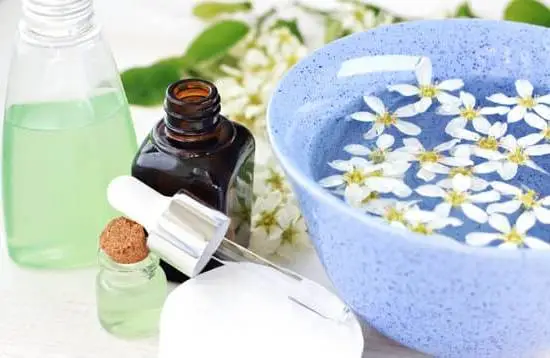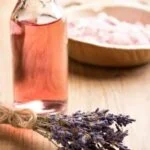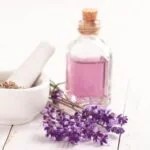Aromatherapy, the use of essential oils to improve physical and emotional well-being, is a practice that has been around for centuries. This article aims to explore the benefits and uses of aromatherapy, as well as delve into the question: “Is aromatherapy covered by health insurance?” Many individuals are turning to alternative therapies like aromatherapy for a more holistic approach to health, but navigating insurance coverage for these practices can be complex.
Aromatherapy has evolved from ancient healing rituals to modern day applications, finding its way into spas, wellness centers, and even medical settings. Understanding the science behind how essential oils work on the body and mind is crucial in appreciating the potential benefits of aromatherapy. There are also misconceptions surrounding this practice that need to be debunked in order to fully understand its impact on health.
Different cultures have embraced aromatherapy in traditional medicine for its healing properties, using it for pain relief, immune support, and emotional well-being. The use of essential oils has shown promising results in improving mental health by alleviating stress, anxiety, and depression. Furthermore, they have been used for physical ailments such as headaches, muscle tension, and inflammation. In this article, we will also explore whether or not health insurance covers these alternative treatments and how to access those benefits.
The Evolution of Aromatherapy
Aromatherapy has a rich and ancient history that dates back to more than 6,000 years. The use of aromatic plants and essential oils for their therapeutic properties can be traced back to early civilizations in China, India, Egypt, and Greece.
These ancient cultures recognized the healing power of aromatherapy and incorporated it into their traditional medicine practices. For example, the Egyptians used aromatic oils for embalming and religious rituals, while the Greeks utilized aromatics for both medical and cosmetic purposes.
As time progressed, the use of aromatherapy continued to evolve. In the 20th century, a French chemist named René-Maurice Gattefossé coined the term “aromatherapy” after accidentally discovering the healing properties of lavender oil when treating a burn on his hand. This serendipitous event led to further research and the development of modern aromatherapy as we know it today.
The Influence of Modern Aromatherapy
In recent years, there has been a resurgence of interest in natural and alternative healing methods, including aromatherapy. With advancements in technology and scientific research, there is now a greater understanding of how essential oils work on both the body and mind. This has contributed to the integration of aromatherapy into mainstream healthcare practices, as well as its widespread use in spa treatments, wellness centers, and home environments.
Transforming Ancient Practices for Modern Use
The principles of aromatherapy have remained relatively unchanged over thousands of years; however, its application has adapted to meet the demands of contemporary society. Today, essential oils are commonly used in diffusers for ambient scenting, added to skincare products for their natural fragrance and therapeutic benefits, and even incorporated into massage therapy for enhanced relaxation and stress relief.
Moreover, with an increasing focus on holistic health care approaches, many individuals are turning to aromatherapy as a complementary or alternative treatment for various ailments.
The Science Behind Aromatherapy
Aromatherapy is a holistic healing treatment that uses natural plant extracts to enhance the physical and psychological well-being of an individual. Essential oils are the key components of aromatherapy, and they are extracted from various parts of plants such as flowers, leaves, bark, roots, resin, and peels. These essential oils have been used for centuries in traditional medicine practices and are believed to have therapeutic properties.
The science behind aromatherapy lies in how essential oils work on the body and mind. When inhaled or applied to the skin, these oils can stimulate brain function and affect the limbic system, which is linked to emotions, behavior, motivation, and long-term memory. Additionally, essential oils can also be absorbed into the bloodstream when applied topically, where they can travel through the body’s systems to promote healing.
Some common essential oils used in aromatherapy include lavender for relaxation and stress reduction, peppermint for energy and mental clarity, tea tree for its antimicrobial properties, and eucalyptus for respiratory health support. These essential oils contain chemical compounds that interact with the body in various ways to bring about therapeutic effects. The science behind aromatherapy continues to be researched and studied to understand how different essential oils can impact overall health and well-being.
- Essential oils stimulate brain function
- They affect the limbic system
- Can be absorbed into the bloodstream when applied topically
- Common essential oils used in aromatherapy
Debunking Myths
Myth: Aromatherapy Is Just a Placebo Effect
One common myth about aromatherapy is that it’s simply a placebo effect, meaning that the benefits experienced are purely psychological. However, research has shown that essential oils used in aromatherapy have real physiological effects on the body. For example, studies have demonstrated that certain essential oils can have anti-inflammatory, analgesic, and antimicrobial properties. Additionally, the inhalation of essential oils can affect the limbic system in the brain, which plays a role in emotions, behavior, and long-term memory.
Myth: Aromatherapy Is Only for Relaxation
While it’s true that many people use aromatherapy for relaxation and stress relief, its benefits go beyond just promoting calmness. Aromatherapy has been found to have potential effects on pain relief, immune support, improved sleep, and even cognitive function. For example, some essential oils have been shown to have analgesic properties and can be used as part of a holistic approach to managing chronic pain.
Myth: Aromatherapy Is Safe Without Any Side Effects
Another misconception about aromatherapy is that it’s completely safe with no risk of side effects. While essential oils are natural products derived from plants, they are highly concentrated substances that should be used with caution. Improper use of essential oils can lead to skin irritation or allergic reactions. Ingesting certain essential oils can also be toxic. It’s important to always dilute essential oils properly and seek guidance from a qualified practitioner before using them for therapeutic purposes.
Aromatherapy in Traditional Medicine
Aromatherapy has been a part of traditional medicine in various cultures for centuries, with each culture incorporating essential oils and aromas into their healing practices in unique ways. In Chinese traditional medicine, for example, the use of essential oils and aromatic plants is believed to help restore balance to the body’s energy flow, known as qi.
Similarly, in Ayurvedic medicine from India, different essential oils are used in massage therapies and other treatments to promote physical and mental well-being based on individual dosha types. In Egypt, ancient texts have been found to describe the use of aromatic substances for medicinal and spiritual purposes.
In addition, Indigenous cultures from around the world have long used aromatic plants and essential oils as part of their healing traditions. For example, Native American tribes have historically used sage for smudging ceremonies to cleanse negative energy and promote healing. The Maori people of New Zealand have utilized the powerful properties of native plants like manuka for medicinal purposes. These diverse cultural practices demonstrate the widespread belief in the healing power of aromatherapy across different societies throughout history.
As modern society continues to explore holistic approaches to health and wellness, there is a growing interest in integrating traditional knowledge of aromatherapy from various cultures into contemporary healthcare practices. This includes recognizing and respecting the cultural origins of these practices while also adapting them to meet the needs of diverse populations in today’s world.
Overall, the rich history of aromatherapy in traditional medicine serves as a testament to its enduring significance as a tool for promoting well-being across different cultures.
Aromatherapy and Mental Health
Aromatherapy has been used for centuries to improve emotional well-being and mental health. Essential oils are known for their calming, uplifting, and stress-relieving properties, making them a popular choice for those seeking natural remedies for emotional support. Some of the most commonly used essential oils for mental health include lavender, chamomile, bergamot, and rose.
The use of aromatherapy in improving emotional well-being is backed by scientific evidence. Research has shown that certain essential oils can help reduce symptoms of anxiety and depression, improve sleep quality, and promote overall emotional balance. For example, the scent of lavender has been found to have a calming effect on the nervous system, making it an effective option for those dealing with stress and anxiety.
In traditional medicine practices around the world, aromatherapy is often incorporated into healing rituals to address emotional imbalances. In some cultures, specific essential oils are believed to have spiritual significance and are used during meditation or prayer to enhance emotional well-being. Whether used in traditional medicine or modern wellness practices, the benefits of aromatherapy for mental health are widely recognized.
- Lavender: Known for its calming properties
- Chamomile: Used to promote relaxation and reduce anxiety
- Bergamot: Has mood-lifting effects
- Rose: Often used to alleviate feelings of grief and promote self-love
Aromatherapy and Physical Health
Aromatherapy has been used for centuries as a natural way to alleviate pain and bolster the immune system. In recent years, essential oils have gained popularity for their potential health benefits in providing relief from various ailments and supporting the body’s immune function. Many essential oils, such as lavender, eucalyptus, peppermint, and tea tree oil, are known for their analgesic properties that can help reduce pain caused by headaches, muscle aches, and joint discomfort.
Additionally, certain essential oils have antibacterial, antiviral, and anti-inflammatory properties that can aid in boosting the body’s immune system. For example, eucalyptus oil is commonly used to relieve symptoms of respiratory conditions such as coughs and congestion. Tea tree oil is also known for its antimicrobial properties that make it effective in fighting off infections. These essential oils can be used through inhalation or topical application to support overall physical well-being.
While many people turn to aromatherapy as a complementary approach to managing physical health conditions, there is ongoing debate on whether health insurance covers the use of essential oils for pain relief and immune support. Understanding insurance coverage for aromatherapy is crucial for individuals seeking alternative methods for addressing their physical health needs.
It’s important to research healthcare providers and insurance plans that include coverage for aromatherapy treatments. Fortunately, there is an increasing number of holistic healthcare practitioners who incorporate aromatherapy into their practice with coverage options available through some insurance plans.
| Essential Oil | Benefits |
|---|---|
| Lavender | Pain relief and relaxation |
| Eucalyptus | Respiratory support and congestion relief |
| Peppermint | Muscle pain relief and digestive support |
Understanding Insurance Coverage
In conclusion, while aromatherapy has gained popularity for its potential health benefits, the question of whether it is covered by health insurance is still up for debate. Currently, many traditional health insurance plans do not cover aromatherapy treatments. However, some alternative medicine-focused plans or wellness programs may provide coverage for certain types of aromatherapy treatments. It’s important to carefully review your health insurance policy or speak with a representative to determine if aromatherapy is included in your coverage.
For those who are interested in exploring aromatherapy as a complementary treatment option, it may be worth considering alternative medicine-focused insurance plans or wellness programs that offer coverage for these services. Additionally, some individuals may choose to pay out-of-pocket for aromatherapy treatments as a way to support their overall well-being and address specific health concerns.
Regardless of the approach taken, it’s always important to consult with a qualified healthcare provider before integrating aromatherapy into your wellness routine.
Ultimately, the inclusion of aromatherapy in health insurance coverage may continue to evolve as more research is conducted on its efficacy and as societal attitudes towards alternative medicine shift. In the meantime, individuals interested in incorporating aromatherapy into their healthcare regimen will need to carefully consider their options and make decisions that align with their personal wellness goals and financial means.
Frequently Asked Questions
Does Insurance Cover Aromatherapy?
Insurance coverage for aromatherapy can vary depending on the specific policy and provider. Some health insurance plans may cover aromatherapy if it is considered a part of a broader treatment plan for certain medical conditions.
However, standalone aromatherapy sessions may not always be covered by insurance. It’s important to check with your insurance provider to understand what is covered under your plan.
Is Aromatherapy Considered Medical?
Aromatherapy is often considered a complementary or alternative therapy rather than a primary medical treatment. While it can have therapeutic benefits and is used in some healthcare settings, it is generally not considered a mainstream medical practice. However, research continues to explore the potential medical applications of aromatherapy in conjunction with traditional medical treatments.
Do Aromatherapists Need Insurance?
Aromatherapists may need to consider obtaining liability insurance as part of their professional practice. This type of insurance can provide protection in the event of any legal claims or lawsuits related to their aromatherapy practice.
Additionally, having insurance coverage can help provide peace of mind and demonstrate professionalism to clients. The specific insurance needs of an aromatherapist may vary based on factors such as where they practice and the type of services they offer.

Are you looking for a natural way to improve your health and wellbeing?
If so, aromatherapy may be the answer for you.





